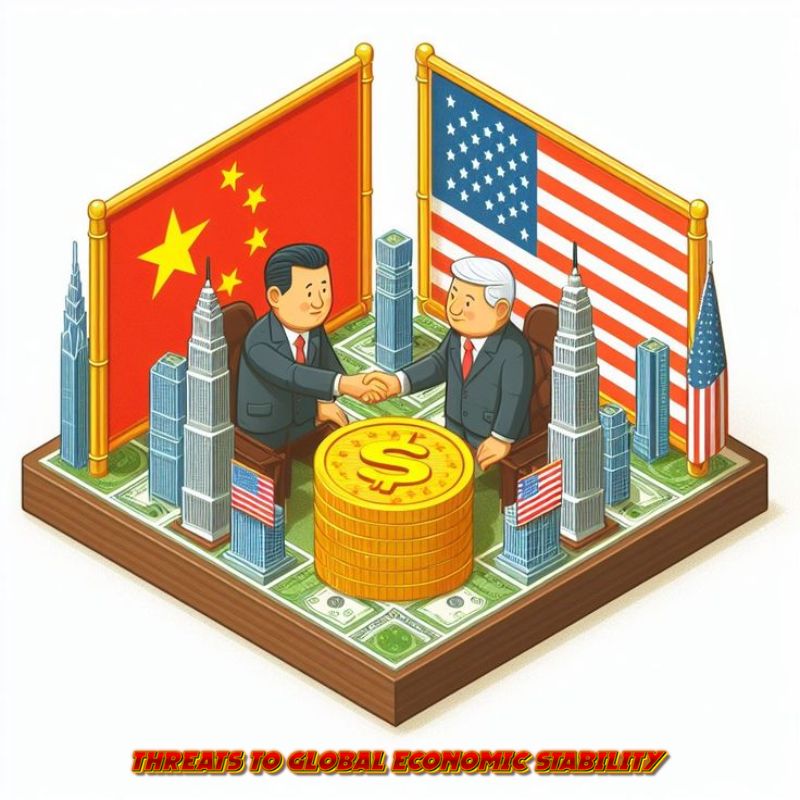Threats to Global Economic Stability. The global economic situation is again facing serious pressure as trade tensions between the United States and China escalate. The world’s two largest economies are raising import tariffs on each other, causing concerns among investors and international financial institutions about the potential for a broad economic slowdown.

Additional Tariffs Up to 100% of America’s Main Products from China
Threats to Global Economic Stability. Threats to Global Economic Stability. The United States recently announced additional tariffs of up to 100% on several key Chinese products, including electric vehicles and semiconductors. China responded with new protectionist policies targeting US agricultural and technology products. The World Trade Organization (WTO) has warned that the escalation of this trade conflict could significantly reduce global trade volume.
World Economic Growth in 2025
According to a Fitch Ratings report, the world economic growth projection for 2025 is estimated to reach only 1.9%. This is the lowest figure since the 2009 global financial crisis, excluding the impact of the pandemic. US economic growth itself is expected to slow to below 1% in the fourth quarter of 2025, while China’s economy is unlikely to reach the 5% target, with a realistic figure in the range of 3.8%.
Increasing Regional Cooperation
The UNCTAD (United Nations Conference on Trade and Development) institution assesses that this tension will not only affect large countries, but also developing countries. Countries that are highly dependent on exports to the US or China could experience a significant decline in demand. In this context, UNCTAD encourages developing countries to diversify trade and increase regional cooperation.
Global Capital Market Uncertainty
Amidst this uncertainty, the global capital market also showed sharp fluctuations. The stock index on Wall Street plunged due to investor concerns about the long-term impact of this conflict. Investors tend to seek safe assets such as gold and the US dollar, driving volatility in the global currency market.
Easing the Global Recession Conflict
Economic analysts suggest that G20 countries should take immediate diplomatic steps to defuse the conflict before it has a wider impact on the global economy. Reconciliation efforts and the establishment of a fairer trade framework are considered important steps to prevent a global recession.
The situation is a reminder that in an interconnected global economy, tensions between just two major economies can trigger a domino effect across the world.
